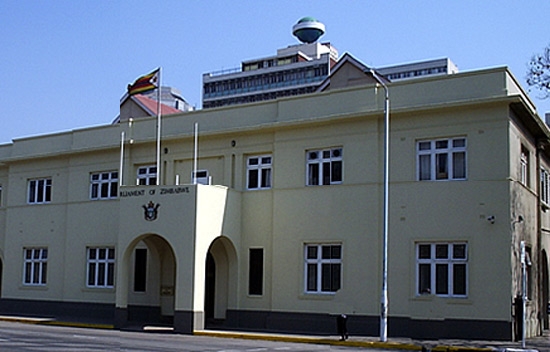HARARE – There is no legal requirement for Vice President Kembo Mohadi to resign over his unraveling office sexual misconduct thanks to reluctance by parliament to enact a code that would penalise such depraved behavior, constitutional lawyer Professor Lovemore Madhuku has said.
Madhuku accused politicians of deliberately ignoring a constitutional prescription for a piece of legislation that would govern their moral behavior and certainly attract punitive measures against Mohadi.
“I am aware that some people might regard what he has done to be immoral or something that is unacceptable but unfortunately under our law moral values do not in themselves constitute any law,” Madhuku opined Sunday.
“There is no law and no standard that can be used to judge whether a vice president or a minister can have 20 or 50 affairs or even sleep with people in the offices.”
Phone recordings obtained exclusively by ZimLive show Mohadi had an affair with married subordinate Abiggal Muleya, a junior Central Intelligence Organisation (CIO) agent, and arranged for sex romps in his office with another wedded lover Chevaughn Choeni, whose marriage has since collapsed.
In newly-released audio, the 71-year-old vice president is heard trying to lure a young beneficiary of his scholarship for sex at a Bulawayo hotel.
The vice president’s predatory behavior has ignited calls for him to resign or be fired, with the opposition MDC Alliance and the Women’s Academy for Leadership (WALPE) joining the growing chorus.
But Mohadi’s removal would only be possible if “parliament, ministers and the government” had enacted “that act of parliament which is contemplated in Section 106 (3)” of the constitution, said Madhuku, taking aim at “citizens for not putting into place a good Constitution.”
“It’s something that must be taken into account that the Constitution simply says there shall be an act of parliament which will put in place codes of conduct.
“It would appear that the government, the president’s ministers and parliament are deliberately not putting into place such an act of parliament because they know that an act of parliament of that nature which is contemplated by the constitution would then allow citizens to judge them on the basis of that standard,” the constitutional law professor added.
But another legal pundit, Advocate Thabani Mpofu observed that Mohadi’s conduct was clearly at variance with Section 106 (2) (b) of the Constitution which says, “Vice presidents… may not during their tenure of office act in any way that is inconsistent with their office, or expose themselves to any situation involving the risk of a conflict between their official responsibilities and private interests.”
Political analyst Pedzisai Ruhanya also weighed in saying the vice president’s raunchy phone conversations were a classic case of abuse of power.
“This is extreme abuse of power and office, the power dynamic is glaring. ‘I love you’, ‘Thank you’, What is that? What romance is that? queried Ruhanya.
“Where are these women’s rights groups, Women’s Coalition! Both law and morality don’t matter to these politicians. The levels of lawlessness and moral bankruptcy is shocking especially for such a high office of the State. You can’t normalise debauchery to such levels, taking it to be religious.”
And legal expert Alex Magaisa agreed: “When someone says ‘I love you,’ and the other responds with ‘Thank you Sir’, there are signs of abuse.”
















